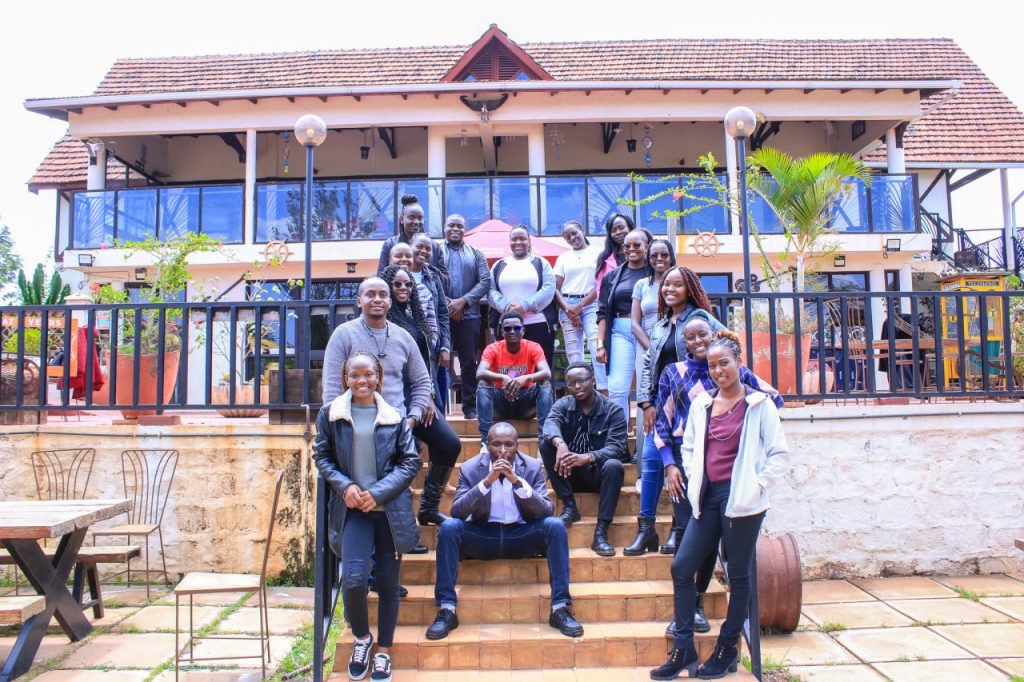ORGANIZATIONAL BEHAVIOUR
An organization’s culture defines the proper way to behave within the organization. This culture is comprised of common values and ideas that have been formed by leaders, communicated, and reinforced via a variety of channels, eventually influencing employee perceptions, actions, and comprehension. Everything a firm does is framed by its organizational culture. There is no one-size-fits-all culture template that can fulfil the demands of all businesses because industries and circumstances differ greatly.

The most prosperous businesses all have a strong culture. Regarding cultural priorities, everyone is in agreement that the company and its objectives—rather than on specific individuals—are what are most important. Successful business leaders actively promote their cultural identities to both current workers and potential new hires while living their cultures every day. They have a clear understanding of their principles, how they define their organizations, and how those values govern how the organizations function.
At its core, a company’s culture is built on principles established from fundamental presumptions regarding the following:
Human nature: Are humans reactive or proactive by nature, malleable or immutable? These fundamental presumptions give rise to ideas about how suppliers, customers, and workers should work together and be controlled.
The organization’s relationship to its surroundings: What is the organization’s definition of its target audiences and business?
Appropriate emotions: Which feelings should individuals be allowed to express and which ones ought to be kept under control?
Effectiveness: What measurements demonstrate the effectiveness of the organization and each of its constituent parts? Only when the culture is backed by a sensible business plan and a suitable organizational structure can a company function effectively. A good organizational culture may have a significant influence on the success and overall performance of a firm. Here are some of the most important advantages and impacts of having a good organization culture:
Employee Engagement
A good corporate culture instils in employees a sense of connection and purpose. Employees are more likely to be engaged and motivated at work when they feel linked to the company’s vision, values, and goals. As a result, production rises, job satisfaction rises, and turnover rates fall.
Talent Attraction and
Retention
A strong company culture aids in the attraction and retention
of top talent. Companies with a good and well-defined culture are frequently
seen as desirable places to work, attracting top candidates. Furthermore,
employees who fit the firm’s culture are more likely to stay with the company
in the long run, lowering recruiting and training expenditures.

Clear Direction and Decision Making
A strong culture gives employees with a clear direction, directing their decisions and actions. When everyone knows and appreciates the company’s values and goals, decision-making becomes more consistent and in line with the overall strategy of the business. This encourages teamwork and efficiency in reaching goals.
Flexibility and creativity
A strong company culture fosters flexibility and creativity. A culture that emphasizes innovation, risk-taking, and continual development provides an atmosphere in which employees feel free to experiment with new ideas and techniques. This can lead to increased creativity, agility, and adaptability to changing market conditions.
Customer Satisfaction and Loyalty
A strong company culture frequently results in improved customer experiences. Employees who are dedicated to providing high-quality products or services and who share the company’s values are more likely to give exceptional customer service. Consumers who are satisfied are more likely to become loyal, repeat consumers, and champions for the company.
Brand Reputation
A positive brand reputation is aided by a strong corporate culture. Companies with a well-defined culture that matches their exterior messaging and activities are perceived to be honest and trustworthy. A good brand reputation may attract consumers, partners, and investors, as well as improve the company’s overall market position.
Resilience and Adaptability in Times of Change
A strong corporate culture provides stability and resilience in a quickly changing business environment. It assists employees in through times of uncertainty, adapting to new difficulties, and maintaining a feeling of purpose. Organizations with resilient cultures can withstand storms, embrace change, and grab opportunities.
Conclusion
While a strong organizational culture can have many good effects, it must also be inclusive, varied, and flexible enough to accommodate differing opinions and changing demands. A healthy culture encourages cooperation, respect, and lifelong learning, resulting in an atmosphere that benefits both workers and the business as a whole.
Other featured Articles

Starting the year with team building
Team building doesn’t really have to come at the end of the year when everyone is having it. Here’s why.

End of year team building
Why is it that most companies and organizations end their year with team building activities?

Team building ice breakers
Read, learn and enjoy as our facilitators take you through team building icebreakers you can do anywhere and anytime.
